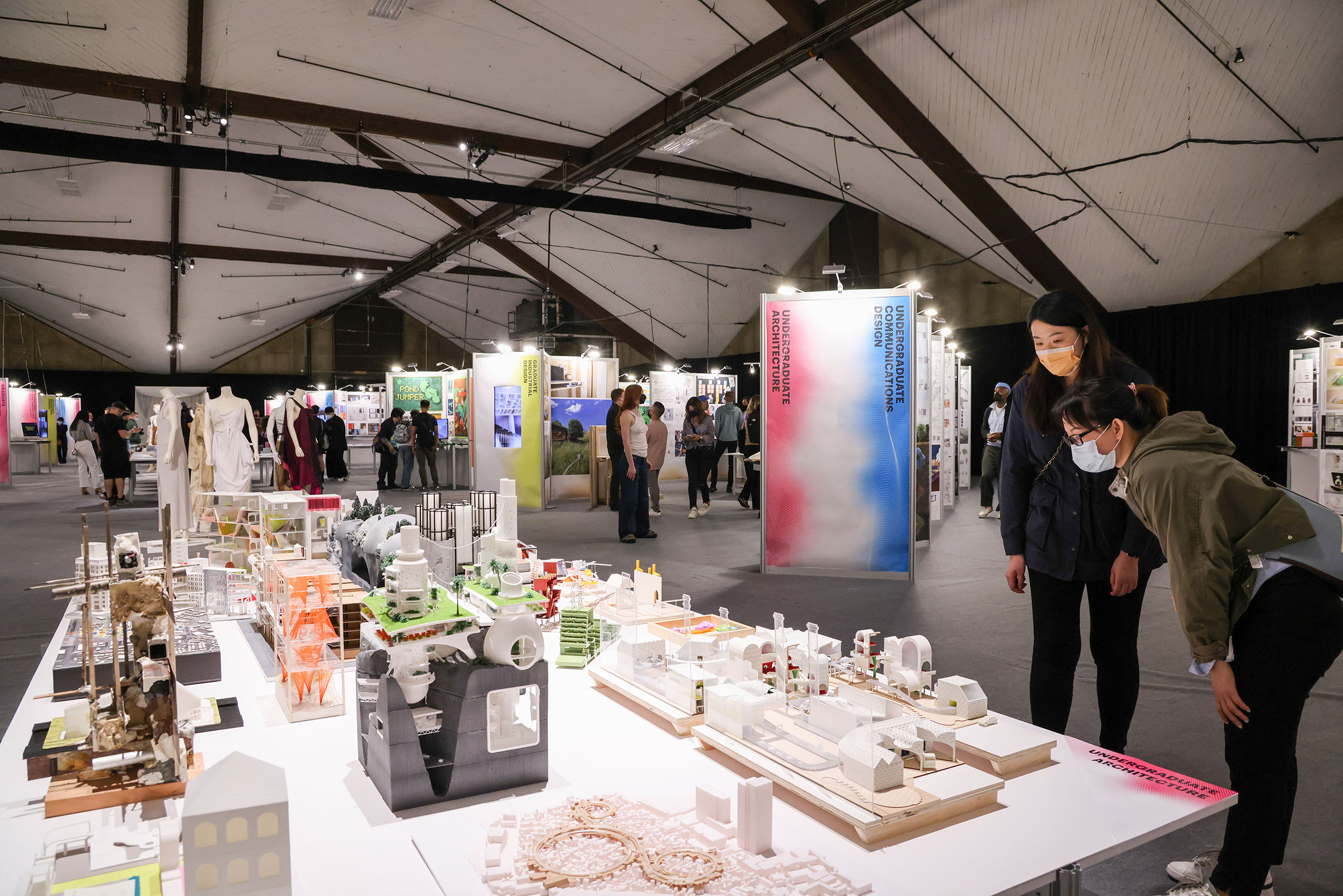MaryEllen Letterman, BFA Interior Design ’65, is a retired faculty member at Syracuse University, where both she and her husband, Raymond, are professor emeritus. She taught at Syracuse University for over three decades and served as its chair of the design department. Previously, she worked as an interior designer at firms such as Perkins+Will. For over 25 years, the couple has been an avid supporter of Pratt and its scholarship funds, particularly those that support undergraduate students in the School of Design.
For Giving Day, she shared how studying at Pratt inspired her approach to teaching, the importance of a well-rounded design education, and how the next generation of designers can contribute to a positive future.
What inspires you to give to Pratt?
Raymond and I support Pratt because Pratt supported me when I needed it. Pratt’s reputation in interior design and its professional design emphasis opened doors for me during all stages of my career. Having teachers who were working professionals was a critical advantage. And, of course, Pratt is in New York City. The city was an important part of my education. The access to the city and its icons of design offered educational experiences that I have never forgotten. The city in the 1960s was also an excellent place to learn lessons about the complexities of life.
You have focused on supporting undergraduate students in Pratt’s School of Design and worked as part of the design faculty at Syracuse University. What drives your passion for nurturing the future of design?
I was a recipient of financial aid from Pratt. The professional design world can be a difficult one to enter and advance in. A broad set of skills is needed in addition to talent and creativity, including problem-solving, communication, and political skills. It is important to have some foundational knowledge of the humanities and social sciences; design is problem-solving for people of all types and backgrounds. The best preparation for a design career provides educational breadth, not just the depth that might come from intensive training. Undergraduate design education should prepare students to work well with others.
What is something you learned at Pratt that you carried into your work as a teacher?
After 13 years in interior design positions, I had the opportunity to join the design faculty at Syracuse University. I taught interior design there for 32 years. A colleague and I revamped the interior design program and curriculum using the Pratt model as an early outline.
My professional design career with its Pratt foundation formed my teaching career. Indeed, the same goes for my life.
What do you see as the importance of a creative education now?
Educating students as professionals with the real-life elements of design—basically, interior architecture—is important. Today, there are serious consequences for design mistakes; codes and human factors are critical in all elements of design. Good designers are needed. When I go to public spaces, I am appalled at the lack of color, the lack of humanity, and the poor planning. Public spaces and the products in them need good professional help.
We also need to educate the public, legislators, and media about what design is and the value it contributes to society.
A creative education must have a strong arts, science, and humanities component to foster well-rounded designers. An understanding of history as a precedent is needed for solving problems and creating environments for various cultures and locales. It is helpful in working with clients, users, and other professionals.
Future designers should be immersed in the design process and the elements and principles of design to solve problems. I believe that design is—although not yet widely recognized—as important to society as medicine. It affects people’s health and well-being, both physically and mentally. We need well-educated designers to be there, doing as much as possible.
Join the Pratt community on 3.22.23 for Giving Day! For 24 hours, we will dedicate attention to supporting student scholarships, programs, and experiences that make Pratt special. Visit donate.pratt.edu.
